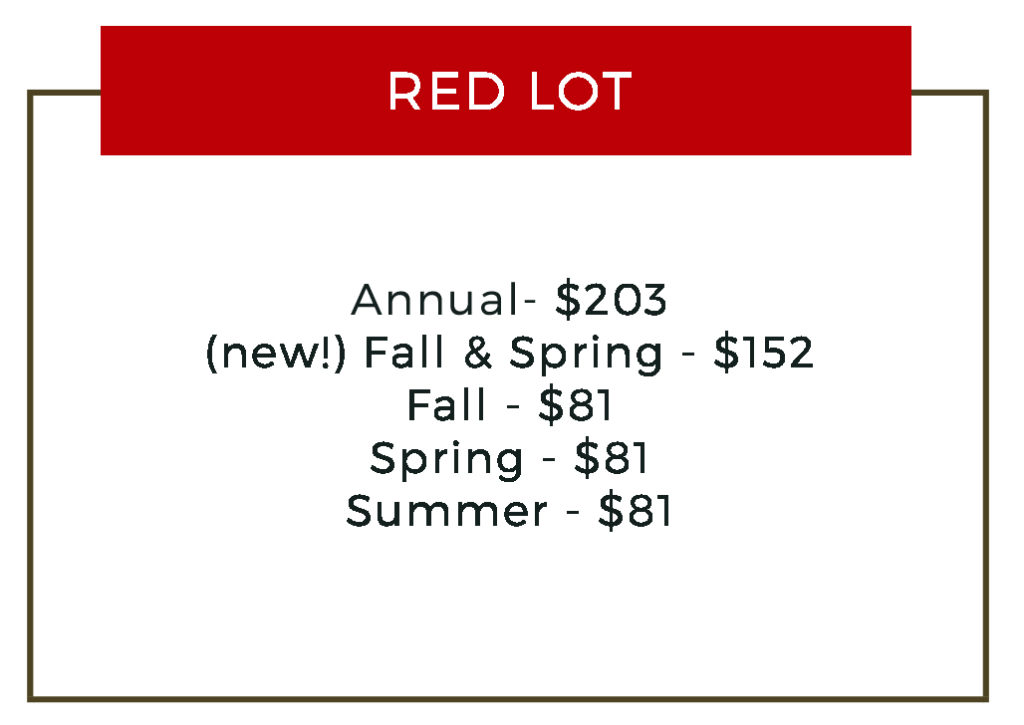Getting a parking permit at WSU Vancouver just became a little less stressful and a little more expensive. With increased costs due to parking lot maintenance and a higher minimum wage, permit prices for all WSU Vancouver parking lots increased 2.9 percent July 23, according to Parking Supervisor Anne O’Neill.
“The university may increase permit prices based on the annual [consumer price index],” O’Neill said. “We have not increased parking fees in three years.”
When someone buys a permit for the upcoming academic year, they will notice a new permit valid for both fall and spring terms.
“We have been thinking about this option for a few years and are very excited to be able to offer it,” O’Neill said. “We feel this option will better suit most students and nine-month faculty.”
The fall/spring permit saves $10 compared to buying fall and spring permits separately. O’Neill said the most efficient way to purchase a permit is online at wsuvancouver.aimsparking.com.
Permits must be picked up in-person between 8 a.m. and 5 p.m. Monday through Friday at Parking Services in the Physical Plant Building. O’Neill said to accommodate early classes, Parking Services will open at 7:30 a.m. the first two days of the semester.
Permit holders who take a different vehicle to school and forget to transfer their permit can stop by Parking Services for a free daily permit, but are limited to three per semester.
Parking enforcement begins on the first day of classes. “We issue on average 2,500 citations a year,” O’Neill said. “Most of those are for not having a permit.”
O’Neill said the parking lots are stressed during the first two weeks of the semester, so arrive early enough to park and walk to your classes.
“Through experience we sell to 160 percent capacity,” said O’Neill. “After Clark College begins in September, we will do lot counts every hour for two weeks. This helps us determine if we can sell more permits in any of the ‘sold out’ lots.”
Another change to campus this fall includes a course scheduling grid designed by the 21st Century Course Scheduling Task Force, a group formed in Oct. 2016 to address growth at WSU Vancouver.
According to a memorandum from the force, a majority of classes were scheduled between 10 a.m. and 2 p.m. “creating scheduling conflicts for our students, competition for classroom spaces and congestion in the parking lots.” This new grid is designed to offer more classes spread throughout the day to alleviate those problems and better serve the student population.
“It will be mid-October before we are be able to determine the effect the schedule changes may or may not have on the lots,” O’Neill said. “We are scheduled to have another lot built and ready by fall 2019.”



